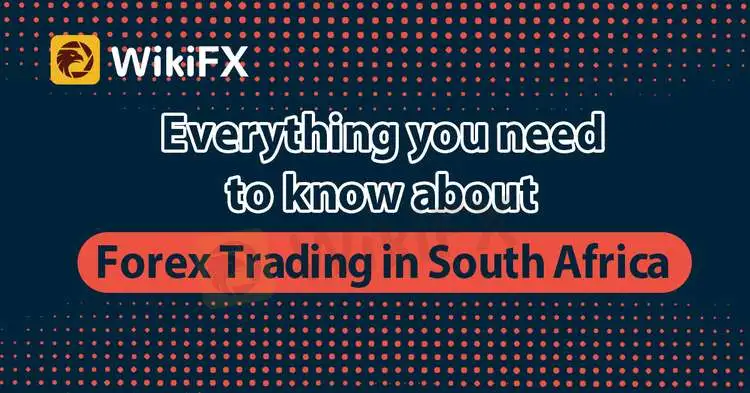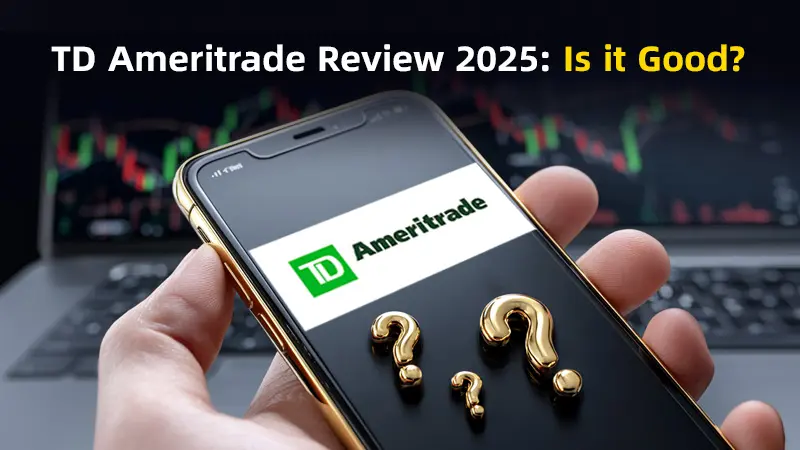Everything you need to know about Forex Trading in South Africa
Abstract:The foreign currency market is the world's largest financial market, with daily trading volume exceeding 85 trillion ZAR.South Africa's daily forex trading volume is projected to be approximately 271 million ZAR, and the South African rand is among the top 20 most traded currencies, with an annual trading volume over 1 trillion ZAR.

The foreign currency market is the world's largest financial market, with a daily trading volume exceeding 85 trillion ZAR. South Africa's daily forex trading volume is projected to be approximately 271 million ZAR, and the South African rand is among the top 20 most traded currencies, with an annual trading volume of over 1 trillion ZAR.
Forex trading has expanded dramatically in South Africa over the last years as it has been generally acknowledged as a pastime, side-hustle, and even a professional vocation for many. Forex trading, like many other trades, comes with a risk warning since it is a leveraged financial instrument, and many retail traders can lose a large amount of money.
REGULATION OF FOREX
Before dealing with forex brokers, South African traders must confirm that the forex market is regulated. Market regulators such as the Financial Sector Conduct Authority (FSCA) in South Africa, the Financial Conduct Authority (FCA) in the United Kingdom, and others require license and authorization.
The Financial Services Commission of South Africa (FSCA) is a respected and trustworthy authority that monitors all Financial Service Providers and offers South Africans the help and protection they require.
Many unregulated forex brokers offer South African investors trading accounts and favorable trading conditions, but they cannot verify that client funds are secure or that South African traders are safe when trading foreign currency and other financial products.
When trading forex, South African traders must ensure that the broker is licensed and authorized, since authorities examine the trading activities of FSCA-registered brokers to see if they can meet their financial commitments and offer a fair and safe trading environment.
FOREX FEES AND COSTS
Because the forex market is the most liquid in the world, South African forex brokers may offer cheaper transaction fees. However, not all brokers are created equal, and forex traders should do a thorough broker comparison to select the forex broker that best suits their trading needs.
Spreads, commissions, overnight costs, conversion fees, margin requirements, leverage, and a variety of additional expenses must all be considered by forex traders to ensure that they are in line with their specific trading strategy.
Traders must also consider non-trading fees such as inactivity, withdrawal and deposit fees, and any other expenses they may incur. Traders must assess how much forex trading will cost them and how much free cash they can devote based on their own financial circumstances.

Related broker





Read more

9 Best Forex Trading Strategies You Must Know
Forex trading is one of the most popular financial markets in the world. It offers opportunities to earn profits by buying and selling currencies. However, success in forex trading depends on having the right strategies. Using effective forex trading strategies can help you make better decisions and reduce risks.

Robo Trading Explained: What It Is and How It Works?
Robo trading, also known as automated trading or algorithmic trading, is changing the way people invest in the stock and forex markets. It uses computers and software programs to buy and sell assets automatically based on pre-set rules. If you want to learn about Robo trading and how it works, this simple guide will help you understand everything you need to know.

TD Ameritrade Review 2025: Is TD Ameritrade Good or a Scam?
TD Ameritrade is a forex broker with trading experience of 2-5 years. We explore the basic details and trading information about TD Ameritrade in this TD Ameritrade review. We take a closer look at the broker registered in China to assess whether it is a reliable trading platform or a potential risk.

Simulated Trading Competition Experience Sharing
Champion Strategy Revealed: Get a Head Start on Winning
WikiFX Broker
Latest News
Valutrades Reports Rising Revenue—But Is the Broker Reliable?
Q3 Trading Results Analysis: Season's End, Shared Growth
SkyLine Review —— XM: Building Lasting Trust Through a Superior Trading Experience
FCA Charges UK Finfluencers Over High-Risk CFD Ads
The Fed Models Were Wrong About The US Economy
Simulated Trading Competition Experience Sharing
Neex Secures UAE License, Expands Middle East Ops
Exness Redefines Forex Trading Standards
Robo Trading Explained: What It Is and How It Works?
What Are Forex Signals? Expert Insights Review
Rate Calc

